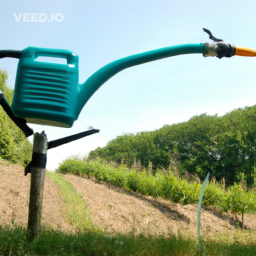In the modern era of agriculture, Business Intelligence (BI) for efficient water management in farming is revolutionizing how farmers optimize water use. With growing concerns about water scarcity and the need for sustainable farming practices, implementing BI tools has become imperative. These tools not only improve water efficiency but also enhance crop yield and reduce operational costs. By integrating data from various sources, BI allows farmers to make informed decisions about water allocation, irrigation schedules, and crop selection, thus ensuring sustainability and profitability.
Importance of Business Intelligence in Water Management
Understanding Water Usage with BI
Business Intelligence provides farmers with a comprehensive view of their water usage. By collecting and analyzing data from sensors, satellite imagery, and weather forecasts, BI systems can create detailed reports on water consumption patterns. This information helps farmers understand the areas where water is being overused or underused. Consequently, they can adjust their irrigation methods and practices, ensuring that every drop counts.
Predictive Analytics for Water Conservation
BI tools offer predictive analytics, which can forecast water requirements based on various factors such as soil type, crop variety, and weather conditions. This predictive capability allows farmers to prepare in advance, ensuring that they have enough water during critical growth stages of their crops. Moreover, it helps in avoiding over-irrigation, which not only saves water but also prevents soil erosion and nutrient leaching.
Implementing BI for Effective Water Management
Data Integration and Analysis
One of the key components of Business Intelligence for efficient water management in farming is data integration. By consolidating data from multiple sources—such as soil moisture sensors, weather stations, and satellite images—BI platforms provide a holistic view of farm water needs. This integration facilitates better analysis, helping farmers make strategic decisions that optimize water usage.
Real-Time Monitoring and Adjustments
BI systems enable real-time monitoring of water usage and soil moisture levels. With this feature, farmers can quickly respond to changes in environmental conditions. For instance, if a sudden heatwave increases the water demand for crops, BI systems can alert farmers to adjust their irrigation schedules. This real-time capability ensures that crops receive the right amount of water at the right time, enhancing their resilience to climatic changes.
Benefits of Business Intelligence in Water Management
Increased Crop Yields
Effective water management through Business Intelligence leads to increased crop yields. By ensuring that crops receive the optimal amount of water, farmers can prevent both over- and under-watering, which are major causes of reduced crop productivity. With BI tools, farmers can maximize their yield potential, leading to higher profitability.
Cost Savings
Implementing Business Intelligence in water management can lead to significant cost savings. By optimizing water usage, farmers can reduce their water bills and save on energy costs associated with irrigation. Additionally, BI systems can help identify leaks and inefficiencies in irrigation systems, enabling timely repairs and maintenance.
Environmental Sustainability
BI-driven water management practices contribute to environmental sustainability. By using water more efficiently, farmers can reduce their environmental footprint, conserving water resources for future generations. Moreover, optimized water usage helps in maintaining soil health and preventing degradation, supporting long-term agricultural sustainability.
Challenges and Solutions in BI Implementation
Data Security and Privacy
One of the challenges in implementing BI systems is ensuring data security and privacy. Farmers need to protect their data from unauthorized access and breaches. To address this, BI platforms should incorporate robust security measures, such as encryption and access controls, to safeguard sensitive information.
Technical Expertise and Training
Another challenge is the lack of technical expertise among farmers to use BI tools effectively. To overcome this, training programs should be conducted to educate farmers on how to leverage BI systems for water management. Additionally, user-friendly interfaces and customer support services can help farmers navigate the complexities of BI tools.
Conclusion
Business Intelligence for efficient water management in farming is a game-changer in modern agriculture. By leveraging data and predictive analytics, farmers can optimize their water usage, leading to increased crop yields, cost savings, and environmental sustainability. Despite the challenges in implementation, the benefits of BI in water management are undeniable, making it an essential tool for the future of farming.
FAQ
What is Business Intelligence in farming?
Business Intelligence in farming refers to the use of data analysis tools and technologies to optimize agricultural practices. It involves collecting, integrating, and analyzing data from various sources to make informed decisions about farming operations, including water management.
How does BI help in water management?
BI helps in water management by providing real-time data on water usage, soil moisture levels, and weather conditions. It enables farmers to optimize their irrigation schedules and water allocation, ensuring efficient water use and preventing wastage.
What are the benefits of using BI for water management in farming?
The benefits of using BI for water management in farming include increased crop yields, cost savings, and environmental sustainability. BI tools help farmers make data-driven decisions that enhance water efficiency and crop productivity.
What are the challenges in implementing BI in farming?
The challenges in implementing BI in farming include data security and privacy concerns, as well as the lack of technical expertise among farmers. These challenges can be addressed through robust security measures, training programs, and user-friendly BI platforms.



